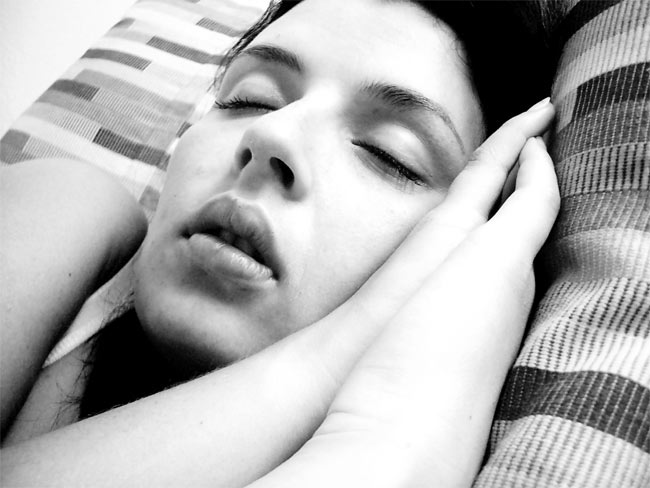Naps Clear the Mind, Help You Learn

You might not need to feel so guilty about taking a mid-day snooze. A new study suggests that napping for an hour or so can refresh your brain, boosting your ability to learn.
On the other hand, the more hours we spend awake, the more sluggish our minds become, according to the findings.
"Sleep not only rights the wrong of prolonged wakefulness but, at a neurocognitive level, it moves you beyond where you were before you took a nap," said study author Matthew Walker, a psychology professor at the University of California, Berkeley.
The study involved 39 healthy young adults who were placed into either a nap or no-nap group. At noon, all the participants performed a learning task intended to exercise the hippocampus, a region of the brain that helps store fact-based memories. Both groups performed at comparable levels on this test.
Then at 2 p.m., the nap group took a 90-minute siesta while the no-nap group stayed awake. Later that day, at 6 p.m., participants performed a new round of learning exercises. Those who remained awake throughout the day became worse at learning. In contrast, those who napped did markedly better and actually improved in their capacity to learn.
Other scientists say naps are natural. Humans are bi-phasic sleepers, which means we're meant to sleep in bouts, not long stretches. About one-third of U.S. adults say they typically take a mid-day nap.
The new findings reinforce the researchers' hypothesis that sleep is needed to clear the brain's short-term memory storage and make room for new information, Walker said.
Get the world’s most fascinating discoveries delivered straight to your inbox.
Previous research has shown fact-based memories are temporarily stored in the hippocampus before being sent to the brain's prefrontal cortex, which may have more storage space.
"It's as though the e-mail inbox in your hippocampus is full and, until you sleep and clear out those fact e-mails, you're not going to receive any more mail. It's just going to bounce until you sleep and move it into another folder," Walker said.
The new work suggests this memory-rebooting process occurs when nappers are engaged in a specific stage of sleep. Electroencephalogram tests, which measure electrical activity in the brain, indicated that this refreshing of memory capacity is related to stage two non-REM sleep, which takes place between deep sleep (non-REM) and the dream state known as Rapid Eye Movement (REM). Previously, the purpose of this stage was unclear, but the new results offer evidence as to why humans spend at least half their sleeping hours in stage two, non-REM, Walker said.
The results, which are preliminary, will be presented today at the American Association of the Advancement of Science (AAAS) meeting in San Diego, Calif.
Next, Walker and his team plan to investigate whether the reduction of sleep experienced by people as they get older is related to the documented decrease in our ability to learn as we age. Finding that link may be helpful in understanding such neurodegenerative conditions as Alzheimer's disease, Walker said.
- 5 Things You Must Know About Sleep
- How Much Sleep Do I Need?
- New Theory Questions Why We Sleep
 Live Science Plus
Live Science Plus






